Our constantly evolving and proprietary technology
Apply our dedicated approach to
manufacturing into approach to growing rice.
No matter how much the world changes, rice remains in center of the Japanese diet.
We would like to contribute by manufacturing to people’s desire to seek truly safe and delicious
rice despite the extra effort that is required to achieve it.
Our proprietary technology as found in our paper mulch -based rice transplanter was also conceived through this commitment.
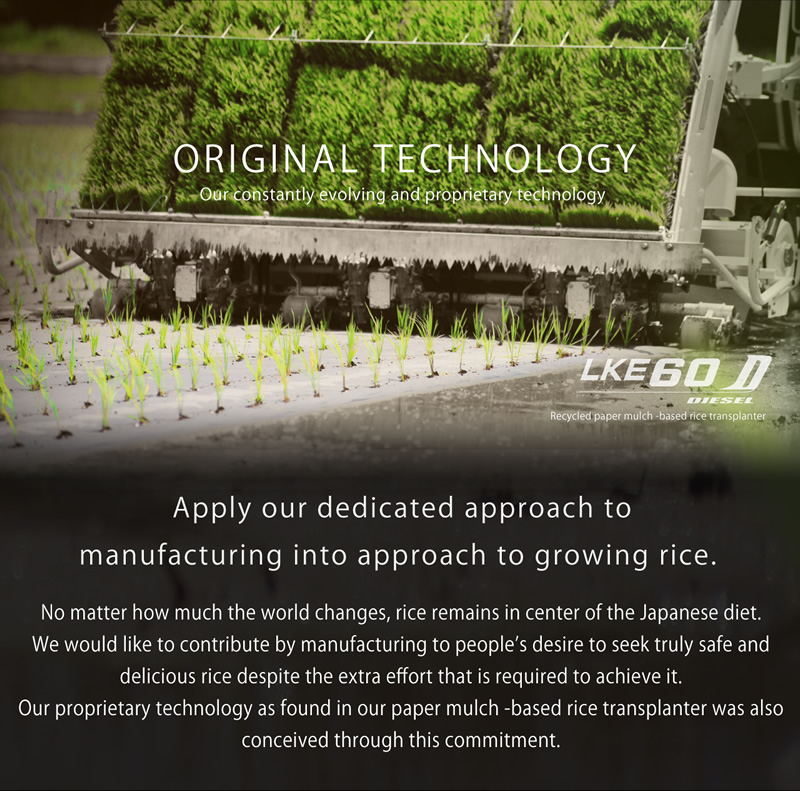
Our proprietary paper mulch -based rice transplanter, which is capable of significantly reducing the need to engage in weeding work, was developed in order to control weeds by laying down a special type of recycled paper over the surface of the field at the same time that rice seedlings are planted and to promote organic farming.
For over twenty years since it was first released in 1997 with a view to conserving the environment and producing reliable food options, our paper mulch -based rice transplanter has been a definite favorite of countless farmers.

Each of our recycled paper mulch-based rice transplanters lays down strips of recycled paper onto the surface of a puddled paddy field right in front of the planting part and proceeds to transplant rice while piercing this paper. Since this laid-down paper blocks sunlight from being cast onto the surface of the field, weed growth is inhibited enough to refrain the growth and flourishing of weeds in check for approximately a month after the transplantation of rice without the need for weed killer.
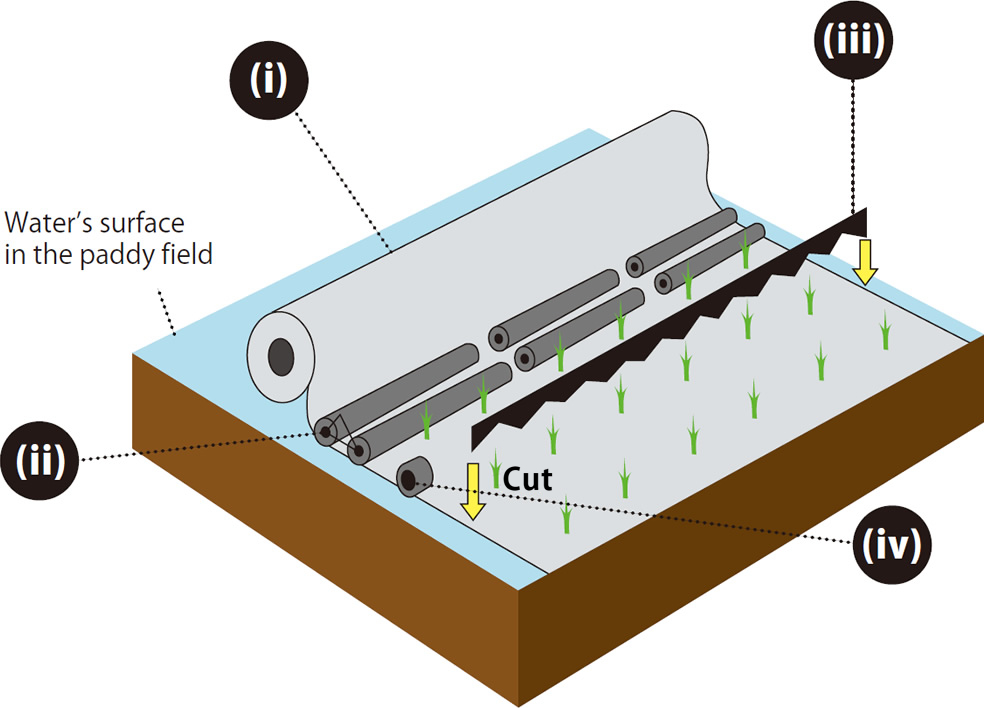
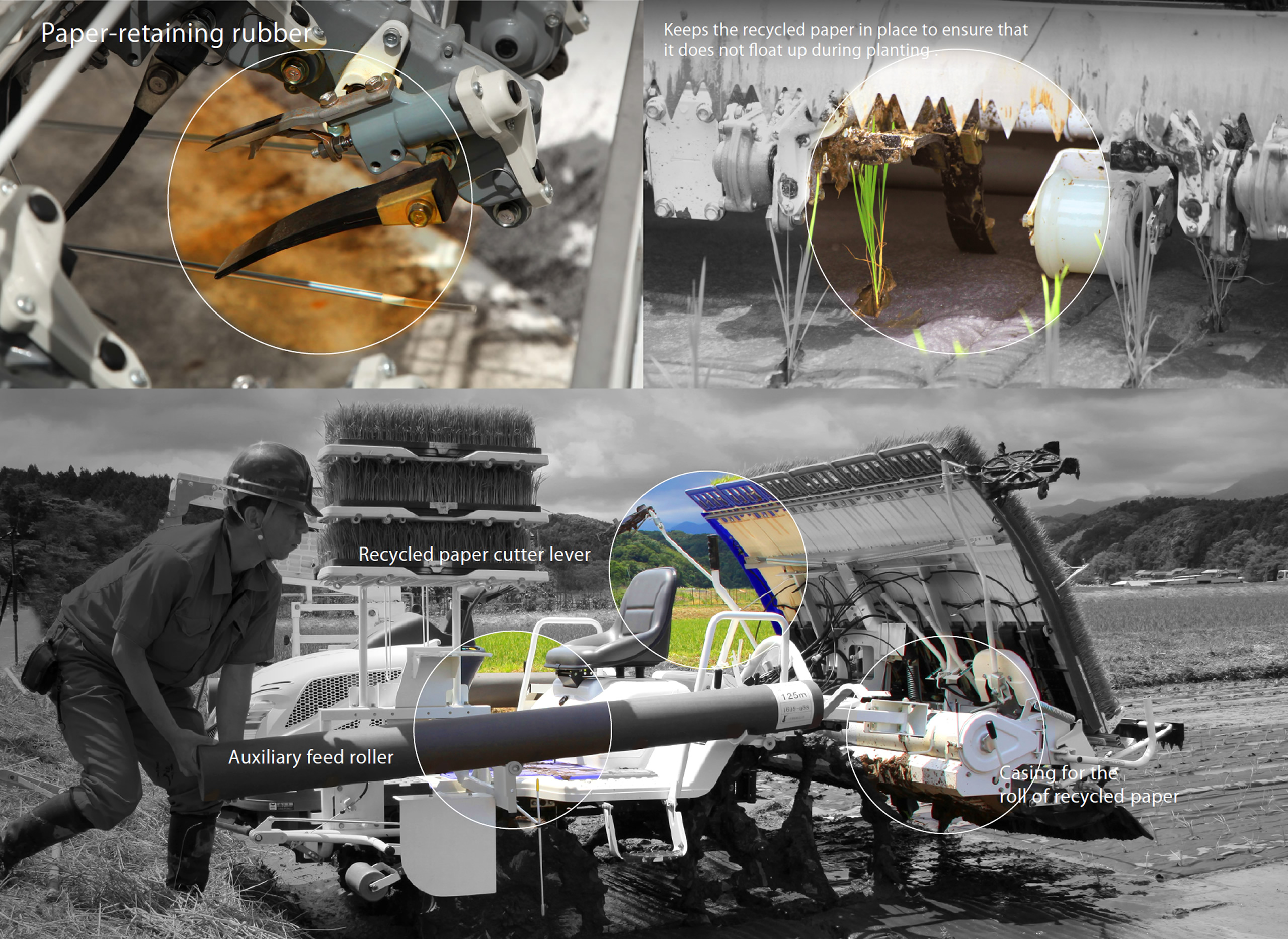
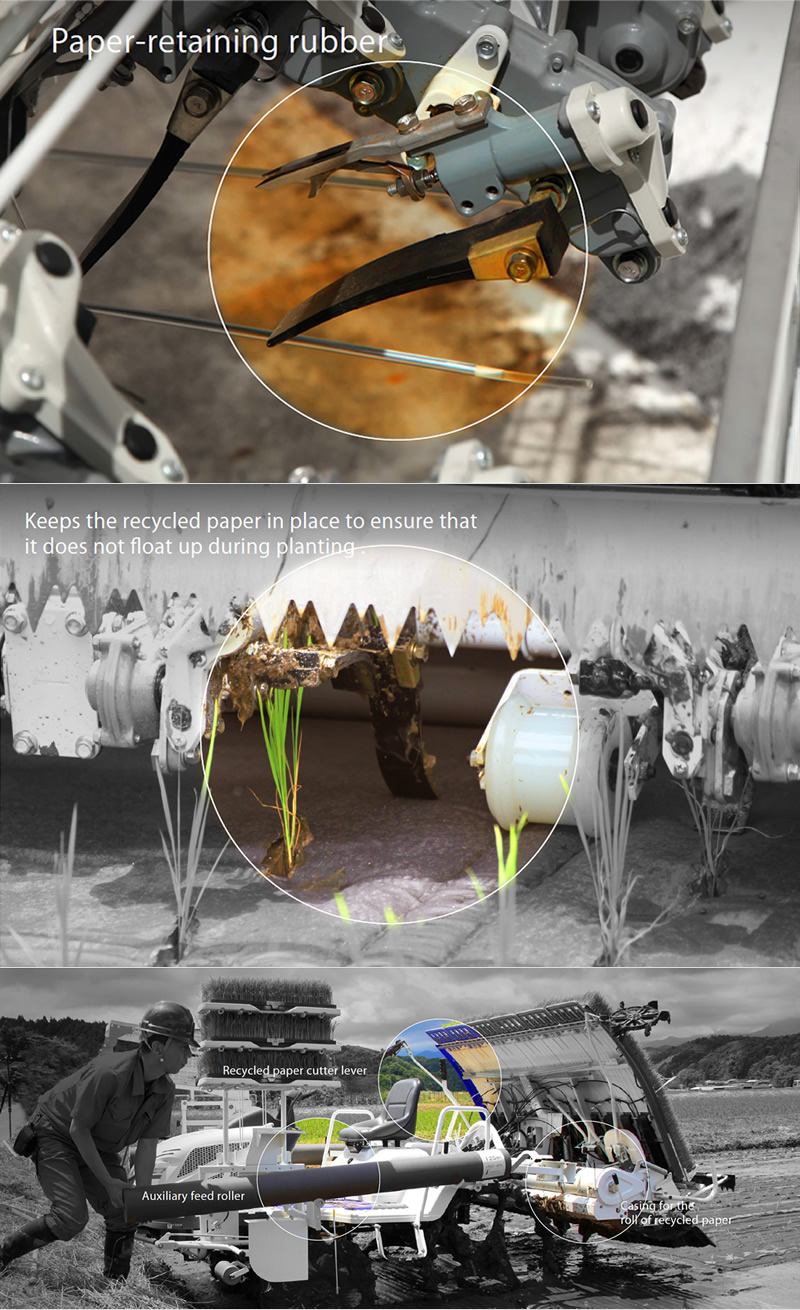
Significantly reduces the amount of
labor required for organic cultivation
Making it possible to expand the scale of high added-value rice cultivation
Against the backdrop of rising interest in food safety and security, demand for specially cultivated rice and organic rice is increasing with each passing year.
At the same time, there were previously limits on the extent to which organic cultivation that eschews the use of weed killers requires enormous amounts of manpower to eliminate weeds.
Paper mulch -based rice transplanters reduce labor requirements for weeding and will robustly help to expand the scale of high value-added rice production. /p>

By planting rice while laying down paper mulch onto the surface of a rice paddy, the growth of weeds is inhibited. The growth of weeds can be inhibited for a period of forty to fifty days from the time of the transplantation of rice seedlings without having to apply weed-killing herbicides. By the time the paper mulch completely decomposes, the rice plants will have grown enough to help prevent the emergence of weeds. Subsequent weeding work will then be easy to perform.
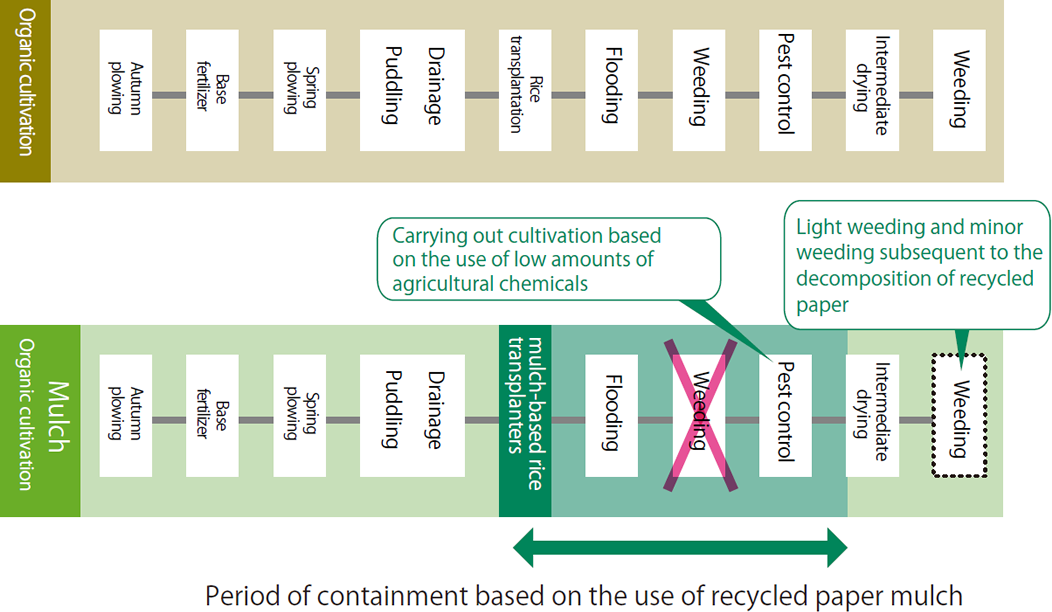
The recycled paper constituting paper mulch is made from pre-used cardboard paper.
No environmental damage is caused since this paper will decompose through the actions of microorganisms and return to the soil in about forty to fifty days after the rice plants have been transplanted.
Since you can also reduce the amount of weed-killing herbicide to be applied, conservation of the local environment is promoted as well.
Less than one percent of farming field in Japan is used for organic cultivation. There are
still huge numbers of people across Japan and around the world who demand safe,
delicious food.
Mitsubishi Agricultural Machinery will continue to provide products and services for
users and consumers in order to protect the environment in local communities and
support the production of safe, secure food.